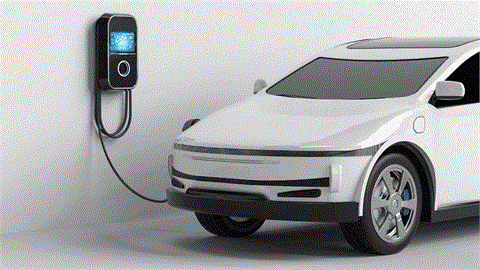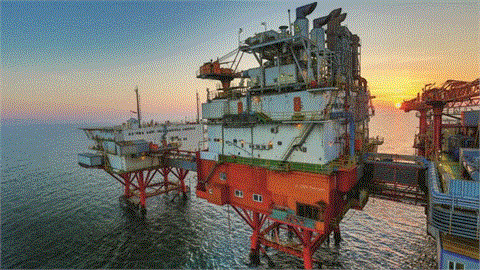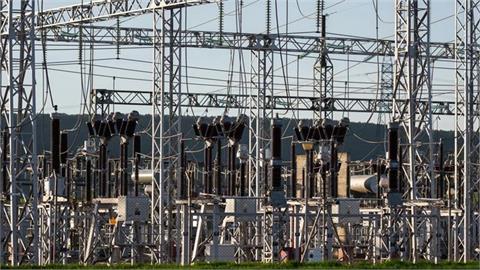by James Crisp* The lack of hard EU legislation for the decarbonisation of Europe’s heating and cooling systems is a failure that puts the bloc’s climate goals at risk, Maarten De Groote, the head of research at the Buildings Performance Institute Europe, has warned
The lack of hard EU legislation for the decarbonisation of Europe’s heating and cooling systems is a failure that puts the bloc’s climate goals at risk, Maarten De Groote, the head of research at the Buildings Performance Institute Europe, has warned.
Maarten De Groote is head of research at the Buildings Performance Institute Europe (BPIE). The BPIE is an independent think tank focused on the energy performance of buildings.
De Groote spoke to EURACTIV.com’s James Crisp.
Why is it important to boost renewables in heating and cooling?
Well first of all heating and cooling takes more or less half of Europe’s energy. And it is more difficult to approach through renewables because they are usually more directed towards electrification in the system. So this means we still rely on other sources for heating.
What are the barriers to renewables getting into the system?
Heating and cooling systems are much more decentralised. You have individual buildings with their own heating systems. This is a difficult approach. Existing district systems in many countries are still very old and using conventional, more polluting energy sources.
Where does the switch take place? At the supply side? Do consumers have to change their heating and cooling systems?
On the supply side the uptake of renewables was very much related to large scale systems like windmills. They are easy to transport across borders and add into the system.
But for heating as such the technologies are related to district heating – on a small scale, or individual heating level. At the level the technology, we’re talking about things like heat pumps or solar panels, which are a much more local solution.
Renewables have a small share in the heating and cooling industry.
It is mostly gas and other fossil fuels, such as oil and coal.
Does the situation vary enormously across the EU?
Yes absolutely. There are two strands, for industry and for housing.
Let’s concentrate on housing.
One third of the total heating demand in Europe goes to heating buildings.
That’s a lot. So if the EU doesn’t get to grips with this, does it risk missing out on its climate goals?
Definitely. And it is not being addressed sufficiently. To decarbonise European heat demand you need to do three things. First you need to decrease demand by 30%, down to 50% of energy demand. Then you have to make your supply side sustainable and efficient. On the supply side there are two levels – one is individual and the other is collective. On the individual level, if you want to decarbonise you have to switch to heat pumps.
If your building has to go towards 80% minimum levels of CO2 emission cuts, the answer is clear. If you know that 75-90% of the current building stock will still be standing, then there is not enough being done to meet the Paris Agreement goals.
The European Commission’s recent winter package backed this collective approach but beyond that call, what has the EU actually done?
If you want me to be honest there is hardly anything in there in the Commission’s proposal for the revised Energy Performance in Buildings Directive (EPBD). There is hardly anything, except for new buildings, which was in the previous directive already.
There is nothing in there to address the huge challenge of the current building stock, 75 to 90% of which will still be there in 2050. On the level of renovation, there is nothing concrete either. That’s a huge failure.
Can the European Parliament amend the legislation?
Bendt Bendtsen, the lead MEP on the bill, is enforcing some tools. One of the major instruments is the renovation strategy. So if you want to have a sustainable or renewable heating and cooling system, you need to renovate your building stock. He enforces at certain levels the renovation strategies.
What is interesting is that when building owners replace their heating system, they are making a decision under time pressure. Very often it happens because there is a system failure. And if it is -10 outside, you want the system replaced the next day. So people decide to stay with their conventional heating system.
What I expect to be proposed is the introduction of a roadmap for the existing building stock. Basically, the day that the system breaks down, you already know which heating system should be put in place to go towards a decarbonised heating system. Otherwise you create a lock-in effect.
Because if you buy a new conventional heating system you will likely stick with it until it is broken.
It is a big investment. If you have a gas boiler you will probably replace it with another gas boiler. It may be more efficient than the previous one but that depends on surrounding policy measures.
Very often people will not switch to another technology like heat pumps.
How difficult is it for a consumer to get a renewable heating and cooling system?
It depends on the country. If you take an individual house, the building profession such as installers is crucial. They need to inform their clients. And they need to have the skills to do that. In the past Renewable Energy Directive there is a level of certification for installers of solar panels and heat pumps but there is nothing like that in the EPBD.
So even if the Commission wants to decarbonise heating and cooling, it hasn’t proposed the hard legislation to follow that.
Exactly. For buildings that is absolutely missing. I hear voices from those operating on energy and district heating that there is more regulation in there but on the level of individual buildings or multi-family buildings there is really no hard legislation.
There are trigger moments in the life-cycle of a building such as a system failure or when it is sold or rented out. There are trigger moments where hard legislation could be put in place.
So why hasn’t it happened? A lack of will from member states? Lobbying from gas companies?
What I understand is there is an anti-Europe feeling that meant the Commission did not want to burden consumers any further. And everything that goes in that direction is being pushed away by member states.
Previous versions of the EPBD were not properly implemented by member states. They have basically been a failure, haven’t they?
Weak implementation is a problem, yes. In the past some countries like Denmark and Germany were taking a frontrunner role. What is really remarkable is that with the clean energy package I don’t see any country taking a frontrunner role.
What needs to change? What are the three things you would make policymakers do to drive decarbonisation?
One would be stricter follow up on implementation across all the directives. Second would be something between guidelines and obligations to really increase the rate of renovations.
Finally, integrating buildings and energy systems. Moving buildings away from being individual units, so they can provide energy into the system and control heating and cooling.
The golden key is district heating but perhaps that is asking too much!
*Journalist in Brussels (EU politics, Brexit, energy, climate etc.)
(This article is part of Euractiv's special report Heating and cooling.)(www.euractiv.com)




